|
As we continue through this “Year of St. Joseph” as proclaimed by Pope Francis in his Apostolic Letter Patris Corde, one cannot help but reflect on St. Joseph: adoptive father of Jesus, spouse to the Blessed Virgin Mary, and Patron of the Universal Church. These lofty and impressive titles have been given to a man who in many respects is seen as humble, consistently in the background, and having no words come from his mouth in Scripture. His example of what it means to be a man and a father is one men can strive for. As a father of a precocious one-year-old, I cannot help but look for examples of how to be a father. Of course, we often look to our own fathers, grandfathers, friends, and perhaps even godfathers and spiritual fathers through the priesthood. There are many qualities that we can emulate from these father figures in our lives, indeed very practical ones. How to change diapers without a mess; how to look good while carrying an undersized backpack filled with wipes, pacifiers, and a change of clothes; or at what posture to best steer that not-tall-enough stroller? What prayers should we be introducing to our young family? How can we strive to provide for our child both practically and spiritually? However, I would suggest another figure to look to: St. Joseph. When my son was baptized, a friend of ours – who happens to be named Joseph – gifted to him (and to us) a statue of St. Joseph. At the time, I considered it more of a funny coincidence, and a nice gesture. As I continued to reflect on it, I really began to see it as providential. Admittedly, as a new father, I was scared and anxious (I still am). St. Joseph undoubtedly faced many of the same anxieties. However, throughout Scripture he is portrayed as a man who sorts out problems and comes up with solutions in practical and brave ways. It is this particular quality that I think we, as fathers, should take as a noble example. There will be times throughout our fatherhoods when we will come to face challenges, confusion, and doubt. St. Joseph protected the Holy Family and trusted in the word of God when it was easy not to trust. As fathers we are called to protect our own families, not necessarily always from harm or danger, and also to provide an example of kindness, love, and humility that so often is characterized as weak. Instead, I invite you to seek St. Joseph’s noble example and see these qualities as a strength. We also need to trust in God. Pope Francis says in Patris Corde, “The greatness of Saint Joseph is that he was the spouse of Mary and the father of Jesus. In this way, he placed himself, in the words of Saint John Chrysostom, 'at the service of the entire plan of salvation.'” Let us as fathers follow in St. Joseph’s noble example to place ourselves at the service of God’s plan for us. Then we will truly be able to serve our families without fear or anxiety. For more on St. Joseph, read our blog post: “Ite Ad Joseph: 10 Quotes to Celebrate the Year of St. Joseph.” **This blog was originally published on April 15, 2021.** **This photo is from: https://cmmb.org/st-joseph-devotions-your-weekly-reflection-from-cmmb/**
0 Comments
What does it mean to be a spiritual father? For me, the answer is found in the experience of fathers that I have known or know. Some are biological fathers, others are father-figures, such as older relatives and friends, priests, and religious brothers. Each in his own way showed me how to love in a fatherly way. Spiritual fatherhood is loving universally, not particularly. The love of Christ that urges us on is one that loves all, no matter what. That is not easy to do, and I fail more often at it than I succeed. The only way that spiritual fatherhood is possible is through cooperation with the grace of Christ. A spiritual father is one who is aware of the working of grace in his life and assists others in recognizing the movement of grace in their own. Good spiritual fatherhood does not just happen. Yes, for me, after ordination to the priesthood, people started to call me “Father.” It is true that one is configured to Christ in a unique way through the Sacrament of Holy Orders. Cooperation with the grace of the Sacrament is over a lifetime, though. One grows into spiritual fatherhood, even as a priest. In the first few years of priesthood, I tried to be of service to others by being present to them in their sorrow and their joy. The most profound moments were in listening and accompanying others. I learned not to say much, but simply to be with them, to walk with them as they deepened their life in Christ. Today, my approach to spiritual fatherhood is similar, but with the experience of walking with others sometimes for many years. I have found that they choose to be in such a relationship with me, not simply as a priest, but also as one who is a flawed follower of Christ. A good spiritual father does not claim perfection, but instead is very aware of his faults and failings, as well as the grace of Christ that is working in and through him. Pope Francis offers this consideration in Christus Vivit: “An especially important quality in mentors is the acknowledgement of their own humanity – the fact that they are human beings who make mistakes: not perfect people but forgiven sinners” (246). Good spiritual fathers are keenly aware that they are “forgiven sinners.” When that is forgotten by a spiritual father, then the focus becomes on self, not on Christ. He is the one who forgives sin and gives the grace to love unconditionally and universally for he, and he alone, is God, the Infinite Love. Click here to read more reflections on fatherhood during the Year of St. Joseph.
During my formative years, I had the distinct privilege of spending time with my grandads and even one great-grandad. In the late 1950’s and ‘60’s, our pace of life and activities was very different from today. We attended school and church, but a lot of our time was centered around our home. Even more unique were our regular visits with extended family on a weekly basis. This afforded me time to be in the company of my grandparents frequently. I listened to their talk about work and how they solved problems and the things that occupied their time. I enjoyed accompanying my dad’s dad on outings to pick blackberries and then had the pleasure of helping in the process to make wine in his cellar. My Grandpop was a nuts-and-bolts kind of man, always busy with his work as caretaker of the cemetery, keeping their only vehicle (an old Ford truck) running, and maintaining the house where he and my grandmom raised thirteen children. It was fascinating learning things from him. I would follow him around and help load coal into their furnace and collect items from the cool cellar that housed their canned vegetables and held Grandpop’s workbench. He liked to show any of us grandkids the things he did for work, as well as the projects he worked on, such as building cedar benches for anyone who wanted one and making wine from the fruits he picked. They lived a hop, skip and a jump from the monastery church and school where they walked to 6am daily Mass. By society’s standards, Pop was minimally educated and made a meager wage that kept them in the lower economic level their entire lives. The gifts we received were hand-made and simple, but lots of time was invested in being family together. I loved being in Grandpop’s shadow and considered the cemetery near their house to be the most magical place in my world with its little streams and bridges and huge fir trees and rolling hills. Amongst those resting in peace, my dad and his twelve siblings grew up under the tutelage of my grandpop’s calloused hands and the soft-spoken voice of my grandmom. My grandmom’s parents lived just three blocks away, and my great-granddad was a successful stone mason with a shop full of heavy, rough-hewn tools that carved important information into big pieces of granite for the deceased. As an adult, I realize how fortunate I was to have enjoyed weekly visits to my great-grandparents. Great-granddad was a tall, polite, and loving man. He would sit me atop a piece of stone and include me in the conversations with my dad and other family. He had two framed pictures over the desk in his shop – the Sacred Heart of Jesus and the Immaculate Heart of Mary. As a kid, I always felt that they were watching me. These images hanging in a prominent place in his shop spoke volumes about the faith my great-granddad had. No matter how busy he was, he had a way of making me feel cherished when we came by. And a visit never ended until he sent us up to the house to get a drink and a slice of cake from great-grandmom. My mom’s dad was another wonderful grandfather with whom I spent much time while growing up. (I never met my grandmom because she died suddenly only three months after my parents were married.) Pop was a tall, handsome man who always wore a suit, and I mean always! He was retired from the phone company and had raised five children through the Depression era. His parents and aunt lived with them in a small but comfortable row home. Most of my time spent with Pop was at our house where he would come most days in the afternoons and stay through dinner. Sometimes we would pick him up at his apartment and I loved seeing his stuff. He was an avid follower of the Baltimore City Fire Department and had a squawk box to hear all the fire calls. He had boxes with index cards full of information on the different fire houses, calls, and each fireman. When my mom was growing up, he would pile the kids in his car and they would go watch the firemen fight fires. He supported the firemen with visits and gifts and had a deep respect for what they did for the community. I loved sitting at his feet in our living room listening to him tell stories of growing up in Baltimore and of his family. He was a regular member at our dinner table in his later years and always took an interest in my studies and in the things I was doing. When my parents would go away on their annual business trip, Pop would come take charge of our household. He made flapjacks for breakfast, walked me to the school bus stop and would meet me there each afternoon. I didn’t need an escort, but it was his way of sending me off. He played cards with us and told stories and made the best stew I’ve ever eaten! He made sure to remind me to say my prayers and he took us to church. Pop was present for all the holidays throughout the years, along with a lot of aunts, uncles, and cousins. Our house was the typical gathering place for my mom’s siblings and so I guess that’s why Pop always came over. In his later years when he could no longer drive, my parents wanted him to move in with us, but he insisted on his own independence and lived out his days, until he died at 89, in his apartment. As a kid, I never thought twice about Pop always being at our home. As an adult, I look back and see the treasure I had in being loved by a man who had all the time in the world to talk. It impacted me more than I realized. Mom and dad took care of the needs of the family, but Pop took the time to share himself with me and take an interest in what I was thinking as a young girl trying to figure out what was important in life. A generation removed, Pop made it abundantly clear how important each member of the family was to him, which instilled in me a strong desire for continued close family bonds in my adult life. I then watched how my dad became granddad to my six children. He was busy seven days a week and lots of nights running his business and providing for our family when I was a child, but as a granddad, he learned how to switch gears and devote attention to his grandchildren through time spent together. He took his role as grand patriarch seriously and lived out sharing the gospel of Jesus with all his grands in very simple but tangible ways. He was a great encourager of all the pursuits of each one and never hesitated to share his testimony of how God helped him on a daily basis to do what he was supposed to do. He shared prayers and taught them the power of talking with God all day long. And when my parents visited for two to three weeks each Christmas season, everyone could see how he laid out his days. He would be seen in a quiet chair early in the mornings with his well-worn prayer book praying his prayers. Then he and mom would attend morning Mass with any of us who would accompany them. He joined in our family prayer time and nightly Rosary. I have also enjoyed witnessing my husband embrace the role of Pops to our sweet grandchildren. He rejoices in the gift of each one and prays daily for them to always hear and respond to God’s call on their lives. He loves playing with them and particularly sharing his love of music with them. The treasure of knowing my granddads and being so loved by them has been a gift in my life that I know has helped me understand the love God our Father has for me. The beauty of the continuous bond from great-grandfather to grandfather to father is powerful and assures me of my heritage. The greatest lesson I learned from these loving men was to invest yourself in others and especially to build up and encourage each member. It doesn’t seem mighty or grand, but it strengthens the foundation of our lives and nurtures deep, holy growth in our specific God-ordained purpose. The richness of a grandfather’s love and care is a gift in the family. Their patriarchal leadership and security are God’s design for how families are enjoined together through the generations and meant to relate. I have had the privilege of this delightful heritage and my prayer is that it will continue to be nourished by the fathers to come in our family. For more resources on Marriage and Family, please click here. To learn more about the Year of St. Joseph, please click here. 7/13/2021 Creating Memories: A Grandfather Reflects on His Role During the Year of St. JosephRead NowWe come in all colors, shapes, sizes. We come with many different names: Papa, Gramps, Granddaddy, Baba, Nonno or maybe even Skipper. The one thing we all share is our unconditional love for our grandchildren. One of my earliest memories of my grandfather Tony (Gramps) was sitting on his lap as he prayed the rosary. As l tried to pull it from his hands, he clutched his beads even tighter. I guess that was my first memory of prayer. When my wife and I had our first child, Gramps told me the 3 greatest things a grandfather can give his grandchildren are love, spoiling them rotten, and memories. I cherish the memories of Gramps to this day: sleeping over at my grandparents’ house, having my picture taken with him at my First Holy Communion, cutting his grass and him giving me a quarter, him asking me to sit next to him at his and grandma’s 40th anniversary dinner, and even taking my then-fiancée when I went to shovel his snow. These are some of the memories he created for me. My dad and father-in-law enhanced the grandfather experience for me as I watched them with our children and their cousins. Birthday parties, school plays, receiving the sacraments or graduations, grandpas were always there. At his grandkids’ Confirmations, my father-in-law would say “Another soldier for Christ”–adding more memories to my collection. l wonder what memories Jesus had of His grandfathers Joachim (the Patron Saint of Grandfathers) and Jacob, St. Joseph’s father. Did He pull on their prayer beads, sleep over at their houses, sit next to them at special occasions? As it becomes my turn to make memories, I pray to St. Joseph that my 4 precious grandchildren will have memories: a picture of us at their First Holy Communion, attending Mass together, me walking them to school or picking them up after school (well maybe after the pandemic), me telling them a corny Papa joke, them giving me a running hug, me spoiling them rotten or maybe even them tugging on my rosary. The aforementioned men have set the bar very high; it is my goal to follow in their footsteps. I remain extremely grateful every day that l have been entrusted to be the Papa of Mabel, Anna, Teddy and Lucy. In the year that Pope Francis has declared the Year of St. Joseph, my best hope would be that St. Joseph gives me the strength to teach them the ways of the Gospel and lead them down the path towards Christ. To me St. Joseph was like an unsung hero. His devotion must have been unwavering. Asked to be the earthly father to Jesus and husband of Mary, WOW!! what a responsibility. Teaching Jesus his trade as a carpenter, teaching Him to pray, preparing Him for manhood, things that many may overlook. St. Joseph simply did the things asked of him by God. God’s love shows through in picking Joseph for this oh so important role in Jesus’ life and the life of the Church. The more I read about St Joseph, the second J of the JMJ (Jesus, Mary and Joseph) I wrote at the top of my school papers long ago, the more awesome I think he is. He did so much without questioning his role. Thank you, St Joseph, for being an inspiration and guiding light as I navigate the waters of being a grandfather. St Joseph, pray for us (especially us grandfathers). To learn more about the Year of St. Joseph and our Fatherhood Series, please click here.
Being a dad is heroic stuff. It demands strength, hard work, a quick wit, a compassionate heart, and an unwavering commitment to the health and well-being of this cute little stranger that has captured your heart. Being a dad is usually intentional. Being an adoptive dad is intentionality on steroids. If all men look to St. Joseph as a guide, companion, and mentor, we will have a more just, prosperous, and peaceful world. While I am writing this reflection for all dads, I want to address young dads or men who are thinking about being dads. My hope is that St. Joseph will awaken in you a clear-eyed grasp of the “fiat” or “yes” of fatherhood. Let me share where I am coming from. I am an adoptive dad with three sons; the oldest is married with three kids of his own, the middle son is headed to college, and the youngest will be a high school junior in the fall. A life-long Catholic, my professional life is in the Church: campus ministry, priestly formation, and mission. Barb and I, married 23 years, wrote a book a few years ago – Rise, Take the Child – Reflections on the Vocation of Adoption. Joseph was an “in the background” saint to me until I became an adoptive dad. In my office, I have an icon of the Holy Family. Our oldest was baptized on the Feast of the Holy Family. In that icon, Joseph is holding Mary (on his right) and Jesus (on his left). He is holding Mary, who is holding Jesus, and he completes the “embrace” of Jesus. Who is this “third person” in the Holy Family? I wanted to encounter Joseph the man. I examined my assumptions. I thought of Joseph as an old man even though biblical evidence suggests he was a strong man, capable of protecting his family, leading them into exile in Egypt and back home, and establishing himself as a successful carpenter. There is nothing “romantic” about Joseph if Shakespeare’s Romeo is our model of a man in love. I find Joseph, in Franco Zeffirelli’s film Jesus of Nazareth, is authentically conflicted; balancing the longing for the completion of marriage, his desire for Mary, the promise of family, the hurt and anger he feels when he learns Mary is pregnant, and his deep desire to do good and avoid evil. Finally, contrary to Joseph’s Song, which I like in many ways, Joseph was not a “simple” carpenter. In the time of Jesus, and even in our time, a carpenter is much more than a laborer. Carpenters were craftsmen – highly skilled and “essential” for society. Some, perhaps even Joseph, were artists. When we pray with Saint Joseph, we need to see him first as a man with his own story, network of relationships, aspirations, work, skill, and deep, abiding faith. This is Joseph, Mary’s tender and loving betrothed, a fierce and decisive protector, a skilled and dedicated provider, and a humble and faithful father who raises Jesus, with Mary, into manhood in first century Galilee. We know the most about Joseph from the Gospel of St. Matthew, which records his four dreams. In his first dream, Joseph “wrestles” with what the law of his faith teaches and what his heart says. Fatherhood is born out of love of a woman. Heterosexual men “long for” the completion a woman provides. This sexual longing (eros) finds its perfection in self-sacrificing love (agape). Joseph does not ignore Mary’s pregnancy – he embraces it as an act of faith and love. He sets aside his fears, welcomes her into his home as his wife, and witnesses God’s saving act unfolding in and through her. His second dream compels Joseph to protect the Mary and the infant Jesus from Herod. Mary, in Luke’s Gospel, “makes haste” to visit her cousin, Elizabeth. Joseph, in St. Matthew’s Gospel, “makes haste” at night into an unknown exile to Egypt, away from the threat of Herod. I am sure there were other dangers on the way to Egypt and challenges in finding work and establishing a home there. There is far less drama in the third dream. Joseph was able to hire himself out as a skilled craftsman and establish a home in Egypt. And yet, he is called by God to help write the great “theo-drama” of salvation so that Jesus, his adoptive son, can fulfill his destiny as God’s “only begotten Son” who is “called out of Egypt.” In some ways, this is Joseph’s “fiat,” his “yes” to God. Through his actions, Joseph accepts the responsibility of raising Jesus as a Jewish man among his people. The fourth dream, on the road home, points to Joseph as provider – choosing a place where Mary and Jesus would be safe, where Jesus could grow “in wisdom and age,” and he could provide for them through the work of his hands. St. Luke’s Gospel points to the peace and tranquility of this domestic time (sometimes referred to as the “hidden life”) for Joseph when he tells the story of Mary and Joseph finding Jesus in the Temple. Imagine the frantic search for Jesus followed by Joseph seeing and hearing his son teaching the elders of Israel in the Temple, the most sacred place on earth. Imagine the rush of emotions – the relief, the wonder, the astonishment. As I prayed with this passage, I was reminded of my experience of my own son playing basketball. He was about ten or eleven years old, he was fouled, and he cautiously approached the free-throw line. He took command of the ball, set his body, and did a perfect shot. Nothing but net. It took my breath away. Others too. We just did not expect “perfection” from someone so young. Was that what Joseph felt when he heard Jesus teaching the elders of Israel in the Temple? In many ways, every father is called to be an “adoptive” father in the sense that they, too, must be intentional, like Joseph, in how they love their children. First, love your wife and partner with her to be a family. Protect her and your children from all that is evil with your strength, perseverance, and decisiveness. Provide for your family through your labor, your craftsmanship, your artistry. And raise your children to adulthood through the witness of your life, integrity, and faith. Pope Francis declared 2021 the Year of St. Joseph, and he wrote a wonderful apostolic letter, Patris Corde (With a Father’s Heart), that provides further insights into this ordinary hero, this extraordinary “every man,” who raised to manhood the Messiah, the Son of the Living God. Click here to read more about St. Joseph in this post written by Barbara and Don McCrabb.
It is rare to find a moment of silence in a household with a two-year-old. Last week, unusually, provided many quiet moments as my normally energetic daughter had a high fever and spent the day on the couch or sleeping only while being held. My wife and I took turns silently holding her to help her get much needed rest. Sitting in silence—without a phone or other distraction--was agitating at first. As the time went on, the simple time spent in silence holding a sleeping child became nourishing and awakened in me a hunger for silence that I often spend time avoiding. This past Lent, I co-led an online small group for newly married men in DC. As we reflected on how the life of St. Joseph relates to us as men, we returned almost weekly to the challenge of finding silence amid phones and families. St. Joseph was not a character that most of us had taken seriously before being married or becoming a father. Yet in marriage and fatherhood, Joseph is the silent role model we need. Someone who understands us and who inspires us. St. Joseph was not a loud or flashy saint. In the children’s books of saints we have for our daughter, the life of silent St. Joseph is hardly mentioned. How can he compete with traveling missionaries, miracle workers, religious founders, and the stories of martyrs losing their heads, eyes, and more? Though his life was not extroverted or bloody, it was no less meaningful. The life of Joseph was a life of daily martyrdoms and silent missions. Without having to leave his home or his workshop, he set out each day as a missionary to offer his life for Jesus and Mary. This is reassuring to me as a husband and father of a toddler, who has been stuck at home during the last 12 months during the COVID pandemic. It is tempting to think that the only way to be holy is to be on the move or to be noticed, like the many Catholic social media influencers or popular Catholic priests or bishops. St. Joseph reminds us of a quieter, ordinary path to holiness that will earn us no new likes or followers. He shows us a hidden, silent example that we need in the noise of daily life. Joseph’s silence teaches us to rediscover the silent mission work found in our own kitchens and living rooms. The artist and Oblate Brother Mickey McGrath has a beautiful image of “St. Thérèse Doing the Dishes.” In the painting, Thérèse is at the kitchen sink elevating a plate as the priest elevates the Eucharist at the altar. This image makes plain our mission as lay men and women to unite our daily work and sacrifices to the great sacrifice of Jesus on the cross which we commemorate at each Eucharistic celebration. Perhaps this image of St. Thérèse doing dishes stands out today because our dishwasher broke this week and my mission field has been researching dishwasher pumps and motor assemblies and spending extra time in soapy water. The image reminds me that God has called me to this mission, regardless of whether it is my preference or how qualified I feel for the task. Joseph must have felt the same way in the ordinary tasks of his workshop and home. St. Joseph is a role model for how we are called to integrate our lives, finding God in every moment of our day—whether doing dishes, praying the Rosary, updating spreadsheets, or building a table. In the life of Joseph, daily work “is a kind of prayer, a way of finding God, a means of salvation…Joseph gave to his carts and yokes the same care he would have given to a tabernacle, since he understood perfectly that a word done in love goes straight to God” (Michel Gasnier, Joseph the Silent, 29). Pope Francis reminds us that, “working persons, whatever their job may be, are cooperating with God himself, and in some way become creators of the world around us” (Patris Corde, 6). St. Joseph is well known for not having a single word recorded in Scripture, but we cannot confuse his silence with a lack of mission. Joseph was a silent missionary who invites us in this Year of St. Joseph to join him in the quiet work. The silent mission of holding a sick child who has fallen asleep, of holding our tongue from an uncharitable word with a family member or colleague, of doing the dishes, or of going about our work with love. Silently. Without recognition. Like St. Joseph. As we continue through this “Year of St. Joseph” as proclaimed by Pope Francis in his Apostolic Letter Patris Corde, one cannot help but reflect on St. Joseph: adoptive father of Jesus, spouse to the Blessed Virgin Mary, and Patron of the Universal Church. These lofty and impressive titles have been given to a man who in many respects is seen as humble, consistently in the background, and having no words come from his mouth in Scripture. His example of what it means to be a man and a father is one men can strive for.
As a father of a precocious one-year-old, I cannot help but look for examples of how to be a father. Of course, we often look to our own fathers, grandfathers, friends, and perhaps even godfathers and spiritual fathers through the priesthood. There are many qualities that we can emulate from these father figures in our lives, indeed very practical ones. How to change diapers without a mess; how to look good while carrying an undersized backpack filled with wipes, pacifiers, and a change of clothes; or at what posture to best steer that not-tall-enough stroller? What prayers should we be introducing to our young family? How can we strive to provide for our child both practically and spiritually? However, I would suggest another figure to look to: St. Joseph. When my son was baptized, a friend of ours – who happens to be named Joseph – gifted to him (and to us) a statue of St. Joseph. At the time, I considered it more of a funny coincidence, and a nice gesture. As I continued to reflect on it, I really began to see it as providential. Admittedly, as a new father, I was scared and anxious (I still am). St. Joseph undoubtedly faced many of the same anxieties. However, throughout Scripture he is portrayed as a man who sorts out problems and comes up with solutions in practical and brave ways. It is this particular quality that I think we, as fathers, should take as a noble example. There will be times throughout our fatherhoods when we will come to face challenges, confusion, and doubt. St. Joseph protected the Holy Family and trusted in the word of God when it was easy not to trust. As fathers we are called to protect our own families, not necessarily always from harm or danger, and also to provide an example of kindness, love, and humility that so often is characterized as weak. Instead, I invite you to seek St. Joseph’s noble example and see these qualities as a strength. We also need to trust in God. Pope Francis says in Patris Corde, “The greatness of Saint Joseph is that he was the spouse of Mary and the father of Jesus. In this way, he placed himself, in the words of Saint John Chrysostom, 'at the service of the entire plan of salvation.'” Let us as fathers follow in St. Joseph’s noble example to place ourselves at the service of God’s plan for us. Then we will truly be able to serve our families without fear or anxiety. For more on St. Joseph, read our blog post: “Ite Ad Joseph: 10 Quotes to Celebrate the Year of St. Joseph.” Having enjoyed being a father for many years, upon learning of the impending birth of a grandchild, I looked forward eagerly to that day. (I even considered the shirt I was wearing when I heard the news to be my “lucky shirt.”) Now, about seven years later, I am truly delighted with my two lovely granddaughters, as they approach the ages of seven and three. They are beautiful in every way, but I especially appreciate the beauty of their hearts and souls. This I attribute gratefully to their mother and father and to God in His goodness. As a grandfather, I have been fortunate to spend much time with my granddaughters both before and after the onset of the COVID pandemic. And, especially as a grandfather, I see St. Joseph as an inspirational role model. My view of St. Joseph is of a man who was comfortable and happy remaining, for the most part, in the background. He evidently found no need to be the center of attention. He simply did his work caring and providing for Mary and Jesus and likely for anyone else who came within the ambit of his responsibilities. He worked hard at his craft and traveled as necessary to keep his family safe. It seems that he did not need to say much using words. I see his example as a goal for me as a grandfather—to be there when needed, to try to promote the health, safety and general well-being of my wife, children, and grandchildren and otherwise—specifically as to grandchildren—to remain when possible in the background, with support and occasional contributions to their physical, spiritual and psychological educations. But being a grandfather is far from only being work and encompassing responsibility. It is mostly about the joy and wonder of being together with grandchildren—to see firsthand the development of human beings gaining strength in mind, body, and soul. I imagine that St. Joseph was pleased but often surprised by the growth and development of Jesus as a child, young boy, and young man. With St. Joseph’s likely experience in mind, I can try to recognize and realize that growth and development is not necessarily predictable. I am constantly surprised by what my granddaughters can do and what they can express in words that seem beyond their years. They are most entertaining and one of a grandfather’s delightful duties is not only to be entertained but also to be able to join in the games and play activities sparked by the imagination of young children. The great value of having the life of St. Joseph as a guide is that there is value in simple presence—being there, experiencing life with young persons, seeing the world through their eyes, noticing and appreciating the moon, stars, or sun, or the dog or cat on the street. Being with grandchildren is akin to what I have often thought about going camping—it makes simple things complicated and complicated things simple. As I anticipate spending more time with my granddaughters, I continue to look to St. Joseph for guidance. As part of my daily prayers, I ask St. Joseph for his intercession for all of us. From his unique role in God’s plan, St. Joseph is well-situated to be an advocate for those of us still on our journeys. What better team could we find to assist us in this manner than our Blessed Mother Mary and St. Joseph? They were holy persons, who during their lives on earth experienced a full range of joys, sorrows, and challenges, and are thus in a great position to sympathize and empathize with us and to advocate for us as we try to work our ways through the many opportunities presented to us to be of service to one another. **This post is part of our series on Fatherhood to celebrate the Year of St. Joseph. To learn more, please click here. For more resources on Marriage and Family, please click here.
As someone who has always looked forward to the next challenge or opportunity both personally and professionally, I haven’t been very skilled at pausing and reflecting on the past. Writing this passage challenged me to settle myself enough to reflect on my journey as a Catholic father, and for that I am thankful as it contains many opportunities for me to continue to grow as both a Catholic and a father. My journey as a Catholic father is closely intertwined with my Catholic faith. My mother was a practicing Catholic and was always engaged in parish life. She also was a Catholic school teacher for many years. As a result, my sister and I were raised Catholic. In my case, this included attending Catholic school during my primary years and attending a Catholic university. I, like many other young Catholics, made my way to becoming an adult in the Catholic Church through Confirmation. While residing at home led by my mother, my sister and I were actively involved in our local parish. My first set of real-life religious decisions came when I went away to college at the University of Notre Dame. At this point, my religion did not feel like it was my own. It felt like it was my mother’s religion and my connection to it was not as clear. During my years at Notre Dame, a campus with over 150 venues in which to pray or attend Mass, somehow I managed to not regularly attend Mass. During my college years, I met my wife of now 32 years. She, like my mother, was an active Catholic who felt sure of her connection to her faith. During our early years of marriage, while she strongly modeled the Catholic faith with regular Mass attendance and engagement in parish life, I once again managed to get by with a part-time Catholic mentality while still searching for how Catholicism would be “my faith” rather than my mother’s or my spouse’s. But my wife and my mother were role models who kept me close to the Catholic Church during this period of uncertainty and questioning. After being married for just over 3 years, my wife and I conceived our first child. After she was born, we immediately began preparations for our daughter’s first step into the Catholic faith with the sacrament of Baptism. During this process, I had a real awakening: many of the questions I had been asking regarding my faith suddenly seemed selfish and self-serving. Although I felt I was prepared to be a father, I felt helpless in many ways to control the events that would impact my daughter throughout her life. It became clear to me that our daughter, and a few years later our son, would certainly need the love and support of their parents. However, they would also need something more—something that would sustain and anchor them throughout their lives regardless of the circumstance or challenge. This was faith, the Catholic faith. Not only would our children need this faith, but so would I. The blessing of fatherhood for me came with many gifts. My Catholic faith had become planted in some very good soil and, as a result of my fatherhood, began to grow. As our children grew up and became adults, my journeying with them as a father, husband, Catholic, and business leader has had its challenges. There was always an endless stream of competing day to day priorities. It was disappointing when, despite all our best efforts to keep all the balls in the air, inevitably some would drop. Reflecting back, it was being present at those moments that gave my fatherhood and faith deeper meaning—when our children wanted to reach out for support, advice, a kind ear, or just to talk about their journey through both life and faith. In some cases, my children might not see the connection between their life journey and their faith journey, as I certainly didn’t a number of years ago. This provides a great opportunity as a father to create these connections for my children as they become full participants in our society and ultimately leaders in their communities, parishes, and professional lives. Having grown in my faith throughout my vocation as a father, I hope that I can be for my children the same role model of a loving, thriving Catholic faith that my mother presented to me. On December 8th, the Solemnity of the Immaculate Conception of the Blessed Virgin Mary and the 150th anniversary of the proclamation of St. Joseph as patron of the universal church, Pope Francis proclaimed the Year of St. Joseph. To celebrate this historic moment in the universal Church, the Catholic Apostolate Center has launched a series exploring the depth and richness of fatherhood. We will feature one post a month from fathers at different stages of fatherhood, godfathers, spiritual fathers, priests, and grandfathers throughout the year. We invite you to join us this year in learning more about masculinity, fatherhood, the dignity of labor, and the importance of faithfulness to the will of God. As we continue in our life of faith, we invite St. Joseph to be a father to each one of us, guiding us ever closer to his adopted son, Jesus. May he teach us how to be faithful disciples constantly adoring the face of Christ. To kick off our fatherhood series, I’d like to share some powerful quotes from Pope Francis’ Apostolic Letter, Patris Corde, that will help us more deeply come to know the quiet carpenter who helped raise the Son of God. 1. “Each of us can discover in Joseph – the man who goes unnoticed, a daily, discreet and hidden presence – an intercessor, a support and a guide in times of trouble. Saint Joseph reminds us that those who appear hidden or in the shadows can play an incomparable role in the history of salvation.” Throughout salvation history, God has repeatedly chosen the least likely of candidates to accomplish his will. Moses was slow of speech. Peter was a fisherman. Paul was a persecutor of the Church. Joseph was a carpenter. What matters not to the Lord is our status in life, our accolades, our prestige, or our mightiness, but simply that we do His will. St. Joseph modeled that in every moment of his life—from accepting Mary into his home, to naming his Son Jesus, from fleeing to Egypt, to returning to Nazareth. St. Joseph, teach us obedience and humility. 2. “The greatness of Saint Joseph is that he was the spouse of Mary and the father of Jesus. In this way, he placed himself, in the words of Saint John Chrysostom, 'at the service of the entire plan of salvation.'[7]” Joseph was a father in every sense of the word. He guided and protected his family, provided for them, and loved them with tender affection. Everything he did was for the well-being of Mary and Jesus. He is a strong servant leader—one that all men can learn from. To be a father is a great blessing and gift. St. Joseph, help us to be servant leaders. 3. "Saint Paul VI pointed out that Joseph concretely expressed his fatherhood 'by making his life a sacrificial service to the mystery of the incarnation and its redemptive purpose. He employed his legal authority over the Holy Family to devote himself completely to them in his life and work. He turned his human vocation to domestic love into a superhuman oblation of himself, his heart and all his abilities, a love placed at the service of the Messiah who was growing to maturity in his home.'[8]" Just as faith without works is dead, so too is love devoid of service. St. Joseph did not love solely with his words, but by his actions—which is likely why Scripture does not recount any of his speech—with St. Joseph, there was no need. His entire life was a song of love for the Holy Family and for God. St. Joseph, teach us to love as you loved. 4. "Joseph saw Jesus grow daily 'in wisdom and in years and in divine and human favour' (Lk 2:52). As the Lord had done with Israel, so Joseph did with Jesus: he taught him to walk, taking him by the hand; he was for him like a father who raises an infant to his cheeks, bending down to him and feeding him (cf. Hos 11:3-4)." So often, we confuse holiness with otherworldliness. Perhaps we imagine celestial music, bright light, and the presence of angels accompanying the saints wherever they went. But to be holy is to be most fully human—at St. Iraneus said, “The glory of God is man most fully alive.” True holiness means living out our vocations fully, and that includes family life. St. Joseph would have fed Christ and eaten with him, he would have helped him get dressed or tied his sandals, he would have played games with him, sang with him, and worked with him. To be holy is not to be out of touch with reality. St. Joseph was not above the normal duties of fatherhood. St. Joseph, teach us to live out our vocations fully by taking Christ by the hand. 5. "Even through Joseph’s fears, God’s will, his history and his plan were at work. Joseph, then, teaches us that faith in God includes believing that he can work even through our fears, our frailties and our weaknesses. He also teaches us that amid the tempests of life, we must never be afraid to let the Lord steer our course. At times, we want to be in complete control, yet God always sees the bigger picture." A life of holiness does not mean one devoid of fear or suffering. This was true even for Joseph and Mary. What makes Joseph such a model for us is not that he was fearless, but that he trusted in God. He did many things that were difficult and probably not what he had intended for his life, but he trusted and obeyed. He hears the will of God and acts. Later on, Christ himself does not promise a life without the cross, but that He will always remain with us as we carry our crosses. It is when we give God our fears, frailties, and weaknesses that He can transfigure us for His glory. St. Joseph, teach us to trust God. 6. "During the hidden years in Nazareth, Jesus learned at the school of Joseph to do the will of the Father. That will was to be his daily food (cf. Jn 4:34)." The home of the Holy Family was a domestic church in which virtue flourished and sanctity was cultivated. As the head of the family, Joseph served as a priestly figure and an earthly shadow of God the Father. Joseph would have been a man of Scripture who obeyed God’s commandments and lived a life of authenticity and virtue. How beautiful it is to think that Jesus “learned at the school of Joseph.” St. Joseph, teach us to do the will of the Father. 7. "Just as God told Joseph: 'Son of David, do not be afraid!' (Mt 1:20), so he seems to tell us: 'Do not be afraid!' We need to set aside all anger and disappointment, and to embrace the way things are, even when they do not turn out as we wish. Not with mere resignation but with hope and courage. In this way, we become open to a deeper meaning. Our lives can be miraculously reborn if we find the courage to live them in accordance with the Gospel. It does not matter if everything seems to have gone wrong or some things can no longer be fixed. God can make flowers spring up from stony ground. Even if our heart condemns us, 'God is greater than our hearts, and he knows everything'(1 Jn 3:20)." The words of God to Joseph echo once more for us today: do not be afraid! Fear, stress, and confusion are all normal to the human condition. God is not asking us to erase these feelings from our lives, but to give them over to Him. He is calling us to abandon ourselves to His loving providence and not become imprisoned by these emotions. St. Joseph may have feared for his family’s safety and well-being, but he was not consumed by fear or paralyzed by doubt. Pope Francis calls him, “creatively courageous.” “In the face of difficulty,” he writes, “we can either give up and walk away, or somehow engage with it.” Joseph engaged. St. Joseph, teach us to abandon ourselves to God. 8. "Work is a means of participating in the work of salvation, an opportunity to hasten the coming of the Kingdom, to develop our talents and abilities, and to put them at the service of society and fraternal communion. It becomes an opportunity for the fulfilment not only of oneself, but also of that primary cell of society which is the family." Work is a part of God’s plan for humanity. What was not part of God’s plan was toil or fruitless labor that does not uphold mankind’s dignity. Prior to the Fall, Adam was called to till and cultivate the land. Christ has redeemed work once again by enabling us to offer all that we do and unite it to His sacrifice on the Cross. Our work can now have immeasurable meaning and be a means of sanctification. Joseph is also known as St. Joseph the Worker. He worked as a carpenter throughout his life and in this way provided for his family. When we work for others, when we work well and faithfully, our work can be a means of building up the Body of Christ and loving or serving one another. St. Joseph, teach us the dignity of human labor. 9. "Fathers are not born, but made. A man does not become a father simply by bringing a child into the world, but by taking up the responsibility to care for that child. Whenever a man accepts responsibility for the life of another, in some way he becomes a father to that person." Fatherhood is so much more than physical procreation. It involves the cultivation of family and of the human person. It means providing for the spiritual or physical well-being of others. For this reason, priests are also called “Father.” They represent our Heavenly Father and make manifest His graces poured out in the sacraments. They accompany us on our spiritual journeys and act as shepherds guiding us towards holiness. Godfathers, too, play an important role in society by serving as models of holiness for their godchildren and praying and interceding on their behalf. St. Joseph, teach men true masculinity and authentic fatherhood. 10. "The Church too needs fathers." Not only do families need fathers and stable father figures, the Church and world do as well. Authentic fatherhood is an essential part of God’s plan for humanity and is a part of God’s very identity. Society cannot exist and thrive without healthy and holy fathers. God chose to enter the world through a family and was obedient to his foster father Joseph while under his care. Scripture tells us that he "was obedient to them (Joseph and Mary).” St. Joseph, help raise up strong and loving fathers and father figures in our Church and society. As we journey together in the Year of St. Joseph, let us pray to this powerful intercessor using the prayer of Pope Francis, Hail, Guardian of the Redeemer, Spouse of the Blessed Virgin Mary. To you God entrusted his only Son; in you Mary placed her trust; with you Christ became man. Blessed Joseph, to us too, show yourself a father and guide us in the path of life. Obtain for us grace, mercy and courage, and defend us from every evil. Amen. The USCCB designates each October as Respect Life Month: “a time to focus on God’s precious gift of human life and our responsibility to care for, protect, and defend the lives of our brothers and sisters.” The duty to bear Christian witness to the dignity of every human life extends, of course, throughout the year. The annual March for Life in DC and similar marches in other cities highlight the efforts of advocates for the unborn, but being pro-life includes many activities that receive less fanfare but that are no less important. By appreciating the inherent dignity and worth of each life as created by God, we recognize the sanctity of creation and our need to defend it.
The existence of an abortion clinic near my home exemplifies disregard for the dignity of human life, as well as the reality that many clients feel as if there is no better option for themselves or the nascent life inside the womb. To attempt to provide clients with an alternative to abortion and offer support, a number of advocates on the sidewalk offer counseling while others protest the clinic’s operation, pray for the souls affected, and pray in reparation for the sins committed there. Drivers and pedestrians passing by often passionately criticize our presence; many others choose ignorance or don’t want to become involved in such a contentious issue. It’s not a comfortable situation to be in, but we know we have a chance to intervene on behalf of the unborn and the parent(s) who don’t know where else to turn for assistance. Our position is not one of judgment but of love; we cannot turn a blind eye to this silent suffering. Being a father, I vividly recall the excitement and joy of seeing my child develop in the womb of my spouse and then be delivered into this world as an infant. These life events made my pro-life convictions more tangible for me. Even under less-than-ideal circumstances of conception, the personhood of the unborn is not diminished and therefore merits protection. Fatherhood continues to teach me about myself and my role leading a family towards holiness. I have learned I must recognize the graces God bestows on us to build our domestic church and be witnesses to the sanctity of life: the person, the family, and our Faith. I am encouraged by the many who engage with the culture and lawmakers to challenge preconceptions or misconceptions about the value of human life. The immigrant, refugee, criminal, and marginalized are endowed with the same worth as each of us! Threats to the sanctity of life endure in our society and also include sterilizations, physician-assisted suicides, human trafficking, mistreatment and neglect of seniors and the disabled, and other forms of abuse. While others may ignore these sad realities, the pro-life movement knows we have our work cut out for us. In every way in which we engage, educate, and work to convert hearts and minds to be more aware of the value of the life which we have been gifted, we must always act with love, compassion, and hope for the protection and celebration of all forms of human life, from conception through natural death. Life is precious, life is sacred, and life is worth protecting. If we do not take a stand to defend the most vulnerable, who will? As a child, I was perplexed by the three in one nature of the Trinity. It was a mystery that was hard to fathom, but so much about my day to day Catholic faith was steeped in the Trinity that I simply believed and accepted it without question. Everything, from grace before meals, the beginning and ending of our prayers and devotions, the opening of the liturgy of the Mass, and the reception of the sacraments of Eucharist and Reconciliation, began “In the name of the Father, and of the Son and of the Holy Spirit.” In my mind as a child, I considered the Trinity the divine family who created and loved me unconditionally. I felt a strong sense of security under the umbrella of the love and protection of the Almighty, the Savior, and the Helper – as I learned to refer to them. Now in adulthood, I have a deeper perspective on the Holy Trinity – my ‘divine family’ –as being the basis for Christian living. I have been fortunate to grow up in a loving family with a father who lived his life reflecting the divine love of the Holy Trinity. Being nurtured in a very tangible way through the example of my dad’s faith helped me understand and appreciate the gift of family. As a young teen, I remember my father’s admonition from Exodus: “Honor your father and your mother, so that you may live long in the land your God is giving you.” It wasn’t a suggestion; it was a command that came with a promise. My dad had a quiet countenance, but when he spoke, I listened! He appealed to my sense of what was right and encouraged me to be good. Just as God the Father instructed His people and led them on the right path, even amidst great suffering, my dad led our family with a confidence that being good and doing what is right would bring us to eternity with our divine family. Throughout several millennia, God has watched over His creation with providential love. Through the ministry, death, and Resurrection of Jesus, He has shown us mercy very personally. The indwelling of the Holy Spirit in each of us guides us on the daily path of truth. What is so magnificent is how God ordered the human family to live out His wise and benevolent plan. In the Holy Trinity we are given the totality of all we need to live a holy Christian life. I join St. Paul in praying: “This then is what I pray, kneeling before the Father, from whom every fatherhood in heaven or on earth, takes its name. In the abundance of his glory may he, through his Spirit, enable you to grow firm in power with regard to your inner self so that Christ may live in your hearts through faith, and then, planted in love, with all God’s holy people you will have the strength to grasp the breadth and the length, the height and the depth, so that knowing the love of Christ, which is beyond knowledge, you may be filled with the utter fullness of God.” (Ephesians 3:14-19) In Familiaris Consortio, John Paul II shares how earthly fathers “reveal and relive on earth the very Fatherhood of God.” Through my dad’s prayerful and faithful commitment to his role as husband and father, he led us to walk with God. His daily choices to pray and seek wisdom, to act charitably, and to put the welfare of my mom and his kids foremost taught me what the love of the Trinity looks like. By embracing his vocation as protector, provider, and teacher, my father made God’s love manifest in our domestic family. The older I get, the more I treasure this rich heritage I’ve been nourished in! Pope Saint John Paul II also wrote that “a man is called upon to ensure the harmonious and united development of all the members of the family… by exercising generous responsibility for the life conceived under the heart of the mother, by a more solicitous commitment to education, by work which is never a cause of division in the family but promotes its unity and stability, and by means of the witness he gives of an adult Christian life which effectively introduces the children into the living experience of Christ and the church.” This type of earthly fatherhood is the embodiment of the divine being of God the Father in the most Holy Trinity. As the national day to celebrate fathers follows shortly after the Solemnity of the Holy Trinity, it seems fitting to reflect with gratitude on the gift of our divine Father and our human fathers—as well as the rich heritage we may possess through them. My dad lived a full ninety-four years and made it his mission to evangelize us to his last breath. He never ceased to serve his children and was a witness to the importance of a personal relationship with the Trinity. He shared with us his prayers to his ‘daddy’ in heaven and to his favorite saints. He encouraged his grandchildren and great grandchildren to talk to God throughout the day and beg Him for help. He exhibited an abiding hope in gaining something good from every experience, good or terrible. His favorite expression to everyone he encountered was “everything is beautiful!” His peaceful, positive countenance is what everyone remembers of him. This countenance comes from his life lived closely under the protection of God our Father, his devotion to the Sacred heart of Jesus, and his willing surrender to the wisdom of the Holy Spirit. My earthly father was a gift who made the love of God real for me; I will be forever grateful. My wife and I welcomed our first daughter into the world on February 24th, and we brought her home a few days later on Ash Wednesday. As is the typical newborn parent experience, we’ve endured frustrating, sleepless nights and reveled in joy-filled, playful mornings. Because of stay-at-home, work-from-home orders in Texas, my parental leave has been longer than I anticipated, but I believe this is a blessing. Each moment I’ve had with my daughter has been precious, and as I sit on this (squeaky!) rocking chair holding her in my arms, balancing my laptop on my knee, the recent advice of expert parents runs through my mind and evokes in my heart a fresh understanding of God’s divine fatherhood and my pursuit of sainthood. In the weeks leading up to our daughter’s birth, one mother of 6 said something to me to the effect of: “The nights are long and the days are short, but the years are the fastest of all.” In these first few weeks of parenthood, I’ve found that my wife is more easily roused during the night. When it’s my turn (opportunity, really) to get up mid-REM cycle, the nights really do feel long. Honestly, they drag. But it’s struck me more than once that getting up in the middle of the night is a very practical way that I can pursue holiness in my vocation. To sacrifice sleep to offer comfort to my child and rest for my wife is not in the same league as answering a burning question for the Summa or calling out a witty line while being burned at the stake, but it is a constant formation in the virtues of humility and charity. I’m led to consider St. Therese’s “little way,” which makes more and more sense each day. Those long nights always do turn into days and, I’m sure, the years will speed by soon. Many people, including our pediatrician, have said, “Always hold your baby in the first few weeks, even when she’s sleeping. You’re not spoiling her, and you won’t get to do that forever.” As a general rule, I’ve always believed babies are cute and, therefore, worthy of spoiling. But no one warned me that when it comes to one’s own child, evolutionary biology and divine motivation combine to make one certain that one’s own baby is the most perfect, most adorable being on all the earth and, therefore, is automatically deserving of every good thing. When I’m holding my daughter in my arms, and I gaze upon her (perfect) little face with its self-inflicted scratches and baby acne, I’m blown away at how much love I have for her. Then, I’m briefly terrified at the thought that something bad could happen to her. And isn’t that how it is for our relationship with God our Father? He gazes upon us, loving us with all our imperfections, slightly terrified and sorrowful at the thought that sin and death and temporal pursuits could lead us to ruin. As I adjust this baby in my arms right now, I’m wondering whether God pulls us closer to His bosom in those moments of near separation, gazing upon us all the while, reminding us how beloved we are with, as Nouwen says in Life of the Beloved, “all the tenderness and force that love can hold.” There are many more pieces of advice that have yielded great spiritual reflections for me these last few weeks. Now, I know that I’m not offering any groundbreaking reflections, but maybe the point of this post is not to offer a new thought, but instead to acknowledge that God has spoken these familiar realities of His love and affection for me in a deeper way through the experience of my vocation. I’m encouraged to remind you in these times of distress: God is a loving Father whose sacrificial love turns against all else, even His own justice (Deus Caritas Est, 10) to gaze upon you with all the force that love can hold. Perhaps this is a notion all mothers and fathers before me—spiritual, adoptive, and biological—have come to understand already, but it’s consoling to know that in a time of uncertainty, God still speaks to and affirms His people through personal encounters. Even through a sleeping baby and a squeaky rocking chair. For more resources on Marriage and Family, please click here. St. Joseph was a man for the ages. I like to think of Joseph as a man that walked the walk and only talked if it was necessary. I imagine that he went about his life quietly and out of the spotlight, worked hard in his carpentry, and spent time with his family in Nazareth. Imagining Joseph living today, I have similar imagery: he works for his father’s woodworking business, devotes time in his day for quality family time, and volunteers on weekends. I can picture the same figure then and now. Can you?
St. Joseph’s March 19th Solemnity celebrates faith, fatherhood, and fortitude in a way that brings people together. St. Joseph is the patron saint of the Universal Church, fathers, families, expectant mothers, travelers, immigrants, craftsmen, and many more! People all around the world look to Joseph as a model for their lives because of his deep faith, warm fatherhood, and fortitude. His deep faith evidenced in his “Yes” to marry the Virgin Mother. As we read in the Gospel of Matthew (Mt 1:18-19), Joseph was a kindhearted man who loved Mary so much that he was willing to risk his reputation. He was ready to stick by her through the betrothal and pregnancy and figure it out later, as we might say today. Matthew’s phrase is “divorce her quietly.” Scripture also tells us that God sent his angel in a dream to straighten things out with Joseph: “Joseph son of David, do not be afraid to take Mary home as your wife, because what is conceived in her is from the Holy Spirit. She will give birth to a son, and you are to give him the name Jesus, because he will save his people from their sins.” Certainly, only a man of true faith would hear these words and trust in God’s plan. His protection of the Holy Family and warmth while raising Jesus as his own. Although there is little written about Jesus’ life as a boy before his ministry, we can be sure that Joseph took great care of the Son entrusted to his care. Even when Jesus was a baby, Joseph protected him from death (Mt 2:19-23), presented Jesus at the Temple as was customary (Luke 2:22), and taught him his carpentry trade. This real-life example of fatherhood is one that lends its patronage to all fathers today. In my experience, my dad modeled the fatherhood of St. Joseph when he taught me that working hard in the service of others is one of our greatest duties on Earth. My dad also taught me perseverance. And finally, my dad taught me about optimism—an outlook on life that is forever reaching toward hope and success. Fathers have a model to emulate in St. Joseph’s quiet support and care for his family. His fortitude to face the world in times of adversity. At important times in Joseph’s life, he was challenged by God. In those moments, he rose to the challenge by making a selfless choice. In our lives as Catholics, we are often challenged at times of weakness or when life seems hard. Negativity can seem endless, problems pile on top of other problems, media stories show no hope, and family life is full of brokenness. When we are faced with these challenges, it is important to remember our forefathers in faith. We, like St. Joseph, must put our trust in God and entrust to him our lives and those of our loved-ones as well. The tumultuous world we live in will never have hope if we as Catholics are not the first ones to share God’s love. St Joseph is the perfect model of faith, fatherhood, and fortitude that we need in today’s world. Here is a short prayer to St. Joseph for his intercession. Pray this and feel God lift away your fears and despair. Oh St. Joseph whose protection is so great, so strong, so prompt before the throne of God, I place in you all my interests and desires. Oh St. Joseph do assist me by your powerful intercession and obtain for me from your divine son all spiritual blessings through Jesus Christ, our Lord; so that having engaged here below your heavenly power I may offer my thanksgiving and homage to the most loving of fathers. Oh St. Joseph, I never weary contemplating you and Jesus asleep in your arms. I dare not approach while he reposes near your heart. Press him in my name and kiss his fine head for me, and ask him to return the kiss when I draw my dying breath. St. Joseph, patron of departing souls, pray for us. Amen. Editor’s note: The following transcription is from an interview we conducted with Julia Dezelski, the Assistant Director of Marriage, Family Life, and Laity at the USCCB. Julia is attending the World Meeting of Families as a panelist. You can listen to the podcast here. This transcription has been lightly edited for clarity.
Lindsay Myers: Welcome to the Catholic Apostolate Center podcast. This is Lindsay Myers. I'm the Editing Associate at the Catholic Apostolate Center and today we're talking with Julia Dezelski, the Assistant Director of Marriage, Family Life and Laity at the USCCB. We're going to hear a little bit about her role in attending and participating in this year's World Meeting of Families. Welcome Julia. Julia Dezelski: Thank you. Glad to be here. Lindsay Myers: Julia, tell us a little bit about what you do at the USCCB, how you came to your position and then we'll talk about the World Meeting of Families. Julia Dezelski: Sure. So I'm Assistant Director for Marriage, Family Life and Laity, the secretariat of Laity, Marriage, Family Life and Youth at the USCCB. And this secretariat basically oversees the largest portion of the church because it's the laity who we basically deal with on a day to day basis. And it's a big mandate. What we do is assist the committee of USCCB bishops who in turn represent the priorities of the conference in respect to promoting the evangelization and faith formation of the laity. So, basically, whatever issues the laity are facing, we face together as a church and we try to address those challenges faced by the laity, by couples, by families, and all of those challenges we face together. So I came to USCCB last October and as a theologian, my particular focus of study and research has been on vocation and states of life. And my own life journey actually brought me to discern different vocations, which led me eventually to the vocation of a married woman and mother. So I'm the proud mother of a six month old currently. I see my role at USCCB as part of my vocation at this time, especially given the essential importance of the family and the renewed recognition of its centrality at a time in which it's being seriously undermined and attacked. Lindsay Myers: Now how were you selected to attend the World Meeting of Families. Are you representing the USCCB there or…? Julia Dezelski: Well, I was asked primarily given my role as Assistant Director in the secretariat and I'm not officially representing USCCB. Although I will be speaking in so far as I am the Assistant Director at USCCB and I will be attending along with a few other colleagues from the secretariat, as well as a few bishops who will be joining us from the U.S. So I was asked basically just to speak on a panel, which is included in a three day pastoral congress taking place at the beginning of the World Meeting. And each of the three days covers a topic from Amoris Laetitia. And so on Thursday when I will be speaking, the topic is the family and love and it's taken from chapters four to six. So my particular panel on which I'll be speaking is Love Made Fruitful, Amoris Laetitia on cherishing the gift of new life. And I'll be speaking together with a barrister, otherwise known as an attorney from Northern Ireland and an academic from the Bioethics Center in Oxford. And so each of us will be speaking for about 10 minutes on this panel, which will be moderated by Bishop Ayman Martin. And so it should be a really interesting, celebration and experience. It will be the first time actually that I will be attending a World Meeting of Families myself, even though the last one was just in our backyard in Philadelphia. Lindsay Myers: Right. Now what is the perspective that you're going to provide on that panel? Is it your perspective as a wife and mother? So someone ... a member of the laity who's living this family life from the feminine perspective or … ? Julia Dezelski: Yes, precisely. I believe that's another reason why I was asked because I will be approaching this subject from the perspective of a young wife, mother, as well as professionally from the standpoint of theology and as Assistant Director for the U.S. Conference of Catholic Bishops. But I do speak ... My notes are primarily based on my experience as a young mother and from my role as ... in the home as a mother and a wife. So I speak primarily on Love Made Fruitful, I look at the chapter, specifically on the gift of life and then drawing out a couple of key elements that consist of life as being brought into the sphere of a man and woman who are married, who have given - who make that gift of oneself to the other. And then from which that fruit, a new life comes forth. So I'll be speaking on those issues and it will touch a little bit upon the unfortunate referendum which took place in May. Lindsay Myers: Right. Of course. Julia Dezelski: Which has really overturned Irish legislation. I believe from here on out abortion will now be legalized. So it's an unfortunate turn of events right now in Ireland, but maybe it's also providential that the World Meeting of Families is taking place right there on their soil. Because the family is being undermined once more and this might be a beacon of hope for the Irish people. Lindsay Myers: Are you bringing your family with you? Julia Dezelski: I am. Lindsay Myers: Oh, that's exciting. Julia Dezelski: Yes. I had to bring my little one, so my husband's coming along too. Lindsay Myers: Sure. Very nice. You won't have the baby at the panel, I assume? Julia Dezelski: No, she'll probably be in the audience. Lindsay Myers: A little visual witness. Julia Dezelski: Yes. Lindsay Myers: Great. Okay. So let's talk about the World Meeting of Families in general. Do you know why the first one was called or a little bit about the history of the World Meeting Families and could you share that with us? Julia Dezelski: Sure. So it was originally started in 1994 when Pope Saint John Paul II asked the Pontifical Council for the family, which is now the Dicastery for Laity, Family and Life, to establish an international event of prayer, catechesis and celebration. And this draws participants, families from around the globe, and it's also meant to help strengthen the bonds between families, as well as bear witness to the crucial importance of marriage and the family to all of society. So the World Meeting of Families has since been held every three years and it's been held in Europe, South America and most recently in Philadelphia, and now it will be in Ireland. And like I just said, this is I believe an important event for the Irish people given this recent referendum and - Lindsay Myers: Of course. Julia Dezelski: And the Irish ... Thinking back to somewhat my own Irish roots, I have a maternal grandmother who's Irish. The family is a major element in the Irish culture and so I believe that they are going to welcome this event with open arms and it will be a beacon of hope for them. And this is also the first World Meeting of Families to be held since the release of Amoris Laetitia since that was released in 2016. Lindsay Myers: Yes. Julia Dezelski: So the World Meeting this year is really going to be based on that apostolic exhortation. Its theme and inspiration is based on Amoris Laetitia. Lindsay Myers: So would you say that part of the World Meeting of Families, part of the goal is to discuss perhaps how families can begin to live the principles of Amoris Laetitia in their daily lives? Julia Dezelski: I'm sure that's an element of it and that's exactly what the congress, those three days of Catechesis are going to be exploring, those elements of Amoris Laetitia that can be applied to family life. And there is a lot there in the apostolic exhortation to ... which exhorts and also encourages families to live out what they're called to be, a domestic church. Lindsay Myers: And why do you think an event like this is so important for the church right now? You spoke a little bit about the referendum in Ireland, but just more generally for the church in the entire world? Julia Dezelski: I think this event is important particularly because not only in the U.S., but also across the world, there's this real emphasis on the centrality of families. And since the family in one way or another is being undermined in so many different countries across the world, it's an important reminder to us of what the family is, what its role is in the church and its foundational importance in society, because families are really at the foundation of society. So if you have strong families, you ultimately have a strong society and a stronger church. So if you look at recent events in the U.S., especially regarding allegations against clergy and hierarchy, I think that this World Meeting of Families can really serve as a reminder of how much the laity and specifically the family looks up to its leaders in the church. But also it's a reminder that the family is really the cradle of all these vocations. And so I believe that when you have, and this is just my own opinion, but there may be problems among our priests and bishops because there might have been problems in the families of origin. And not to say that that's the fact, but it could be one of the symptoms that there were prior problems in the families from which these clergy come. Not always, but if our families from which our clergy are drawn are virtuous and witness and teach a sexual morality that is true and beautiful as desired by God, most likely their vocations will be holy and virtuous too. So I think it's just a reminder that the family is really the cradle of all vocations and it's also the place where we form young people, young minds and young hearts. And that domestic church is a microcosm of the entire church. So if there's virtue being instilled there in the heart of the home, then there will be virtue in the entire church, the entire mystical body of Christ. Lindsay Myers: Right. So I'm an event like this is almost ... it's almost like a retreat or like a week of professional development or something. Something to gather families together and strengthen them to go back out in the world and to go out on mission and strengthen themselves the better to evangelize eventually. Julia Dezelski: Yeah. I think that's important to remember because there can be a lot of conventions and congresses and conferences and sometimes they seem never ending. And I do wonder sometimes what are, where are we seeing the fruits of these efforts? Because there's a lot of money, time, energy that is spent in preparing for these big events and they're wonderful if they are lived well. Meaning if there's really a true spirit attached to them and if there's a real fruit that comes of it. And I do hope that the fruit of this World Meeting of Families is an increase in a sense of what family is meant to be and called to be by the church. So that it's not just a ... well it's a celebration. Lindsay Myers: Right. Julia Dezelski: But it's also a call to be who you are. So I hope that families are encouraged to be who they are, domestic churches, and see that witness from other families. So ... And I believe that's what Pope Saint John Paul II was trying to do.He had so much at heart about the family, that I think he wanted this to be really a place where families across the world could see: look how we mirror the church together - from all over the world. So we're all church and so gain that kind of strength and encouragement from one another. Lindsay Myers: Now we're talking a lot about families and the beauty of families and I'm in a similar life stage as yourself, married with two young children. But of course when we talk about these things, I kind of have in the back of my head Catholics who are active participants in the church, but perhaps have not been called to family life. Maybe they're called to the single life or they just haven't begun a family yet. So in what ways are those Catholics also encouraged to participate in an event like this, or just how can those Catholics support families in a way that emphasizes the important role that they play as well in the church? Julia Dezelski: Right. Yeah. It's really important to remember that couples who bear the cross of infertility do have a role in family life. I can relate to that in a way because my own sister has been married for five years and she and my brother-in-law have not been able to have children for one reason or another. It's just hasn't happened yet. So they fill another important role in our lives specifically when my daughter was born, I asked her and her husband to be godparents to Miriam. And they were happy to do so because this makes them spiritual parents of a child and the importance of godparents can't be forgotten and I think it's something that tends to be forgotten because ... I don't know really the reason why, but it shouldn't be because it is an important role to play and it's essential really in the forming of the Christian character and formation of a child. Lindsay Myers: Right. You're outsourcing some of that development. Julia Dezelski: Exactly. Lindsay Myers: To someone that you can theoretically trust- Julia Dezelski: That's right. Lindsay Myers: And know that they hopefully aren't going to lead your child into error or sin. Julia Dezelski: Right. Right. Right. It's really a grave responsibility to be a godparent. I am a godparent to a number of people, to three children, and sometimes I do have to remind myself, "That's my responsibility. What am I doing to reach out to them?”, because there's ... I have one godchild in Canada for example. It's really hard to see him on a regular basis. But opening up channels of communication and just staying in touch and making sure that they are being brought up in a Christian household and that they're learning the prayers. Based on their age, what kind of issues they are facing, how can maybe I help reach out and talk about those issues with them if there's something that maybe the parents themselves don't even know how to educate on. So it is a major responsibility and I think that's just one of the ways that couples dealing with infertility can recognize their role with families. And of course there are other things ... other forms of fruitfulness, adoption, foster care, volunteer work, acts of charity, even just to maybe a family that's experiencing financial crisis - or even just by babysitting. Just being that example of another father, mother in a spiritual sense that can help out. Lindsay Myers: Right. And I wonder what you think about kind of the idea that we have our immediate families, our biological families, but there's also a call within our church to build community. You can think of a parish community where, in some sense. that becomes your family. And so there's a place for all of the different family units and the single people and couples struggling with infertility or intergenerational members of that parish community to come together and serve one another and celebrate with one another and grieve, whatever. Just to behave as a family would just on a larger kind of community scale. Julia Dezelski: Yes, that's right. And it's important to remember that each of those people in the church has a place and a role. And actually one thing that we're doing at USCCB at the moment is preparing a pastoral plan to implement Amoris Laetitia that could be used primarily for ministers and family life and marriage on the diocesan level or the parish level. And one of the aspects of that is how to integrate also people in the single life into the Church, into our domestic churches, but also the greater parish community. Recognizing that they have a role there too. And that proximity that we have with so many different states of life. Lindsay Myers: Great. Now for those of us who can't make it to Ireland, how can we participate from afar in this event? Is there anything happening or would you just recommend keeping tabs on the website or … ? Julia Dezelski: Right. Actually, I was just looking at their website and that is really full of ideas actually. They've got this really cool downloadable pray-a-thon to help families prepare for the event. They also have a Let's Talk Family podcast. They also have a prayer space at home initiative. It's almost like a competition or contest that invites families to share photos of the spaces where they pray in their homes and you're invited to upload them to their website. There's also an official prayer of course, that can be recited by families and one idea might even be ... And this is just an idea that I had, some families can even gather together maybe in their own living room and hold their own mini event and watch maybe the papal mass. Maybe not live if there's a six hour difference, but it kind of depends I guess on what time it would be. But I'm sure that at least the papal mass or the festival of families would be live ... recorded on EWTN or maybe online. And so just preparing your own little mini event maybe among families might be fun because I know they do that for the World Youth Day. They have like a World Youth Day on your home base. Lindsay Myers: Great. Well thank you. Those are excellent ideas. Well, is there anything else you'd like to share about the event, your participation, or the importance of family life in the church? Something to leave our listeners with as a wrap up? Julia Dezelski: Sure. Well I'll just comment on what Amoris Laetitia says to families and I think this is in summary, what it’s saying. It's saying: become who you are. Remember that you are a domestic church and it might sound daunting maybe, but it's really as simple as just living out the call to holiness one day at a time. So the stronger our families are, the stronger our church will be in the United States and across the world. Lindsay Myers: Well, thank you, Julia. Let's actually end with the official family prayer for the World Meeting of Families so we can give our listeners a taste of what it is and then they can hopefully find it for themselves and their families on the website. Julia Dezelski: Sure. Lindsay Myers: In the name of the Father and of the Son and of the Holy Spirit. Amen. Julia Dezelski: Amen. Lindsay Myers: God, our father, Lindsay & Julia: We are brothers and sisters in Jesus, your son, one family in the spirit of your love. Bless us with the joy of love. Make us patient and kind, gentle, and generous, welcoming to those in need. Help us to live your forgiveness and peace. Protect all families with your loving care, especially those for whom we now pray. Increase our faith, strengthen our hope. Keep us safe and your love. Make us always grateful for the gift of life that we share this we ask you through Christ our Lord. Amen. Lindsay Myers: Thanks Julia. Julia Dezelski: Thank you, Lindsay. Julia Dezelski is the Assistant Director of Marriage, Family Life, and Laity at the USCCB. |
Details
Archives
July 2024
Categories
All
|
About |
Media |
© COPYRIGHT 2024 | ALL RIGHTS RESERVED

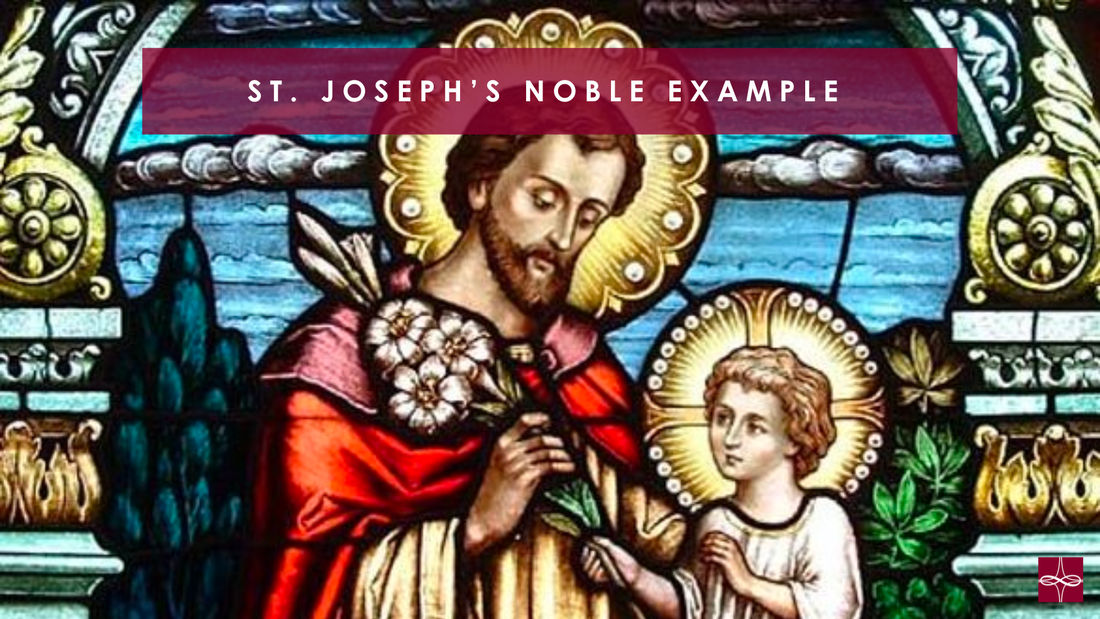
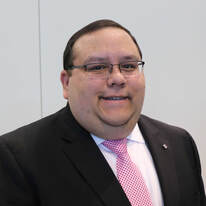
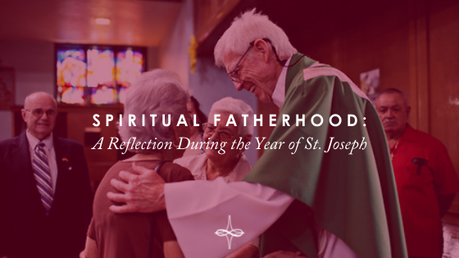
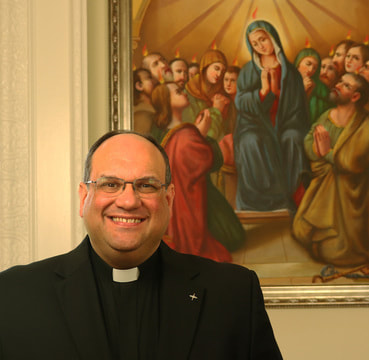



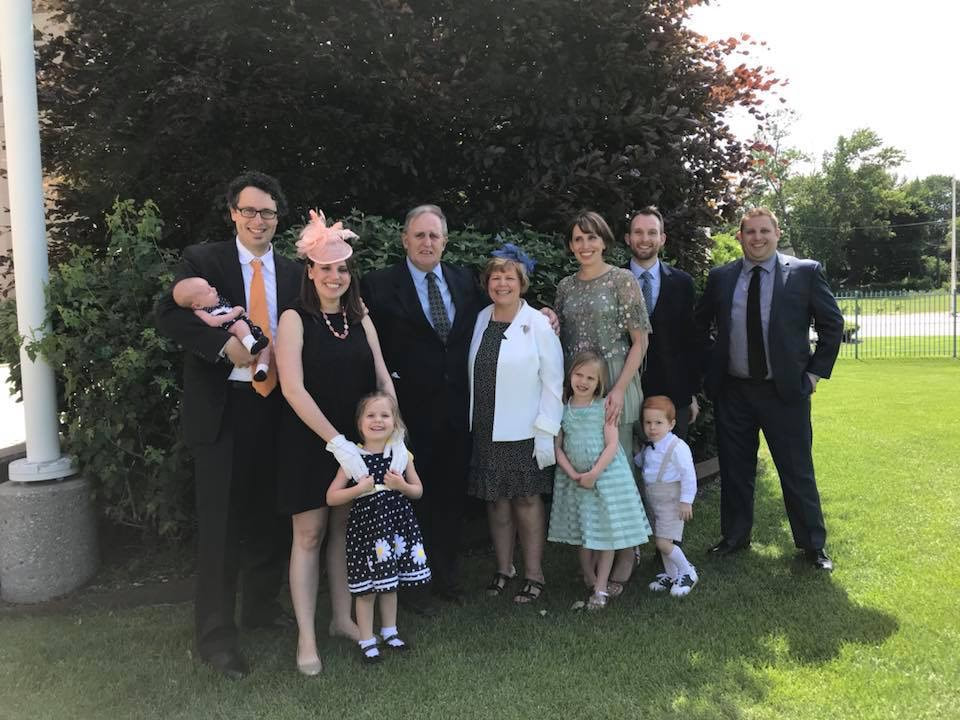
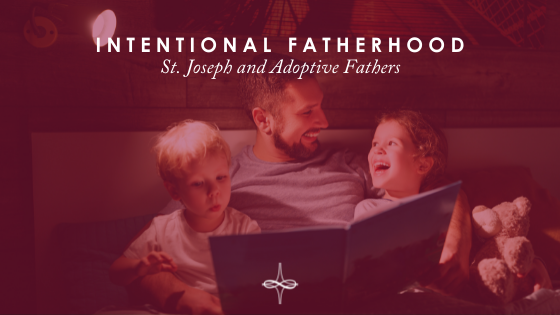

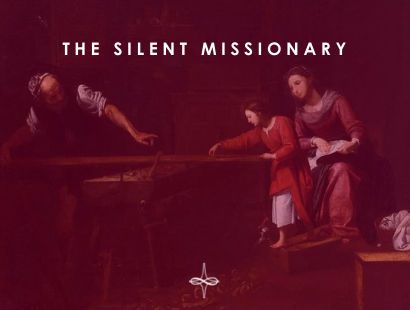

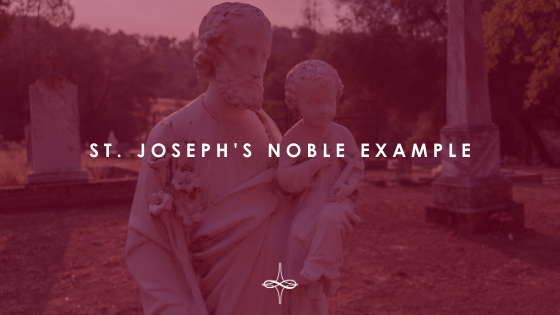
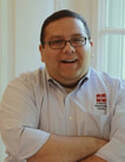

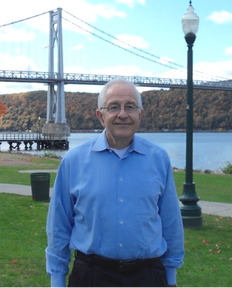


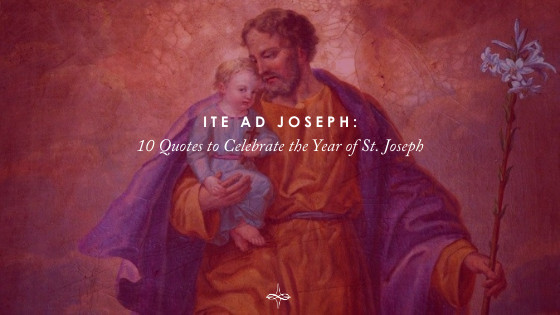

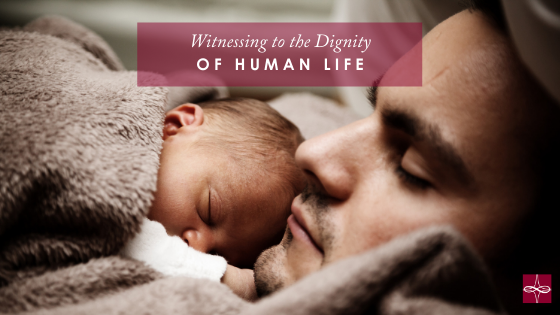

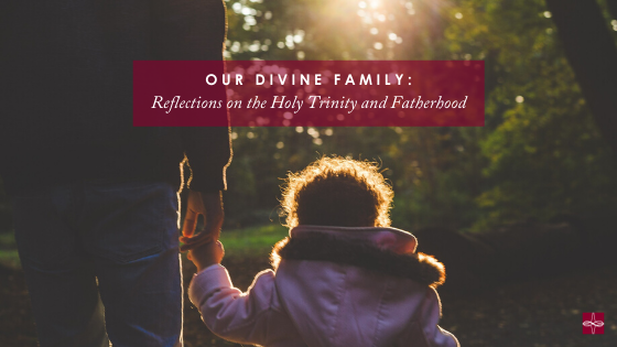

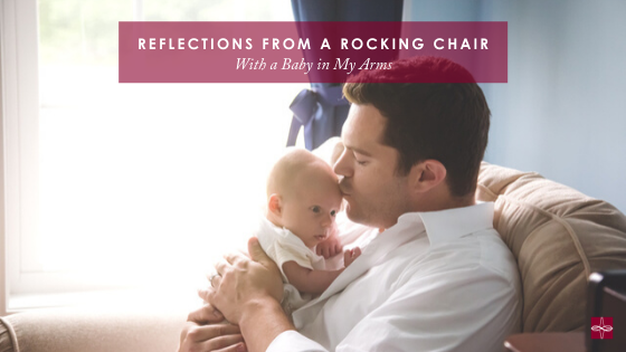

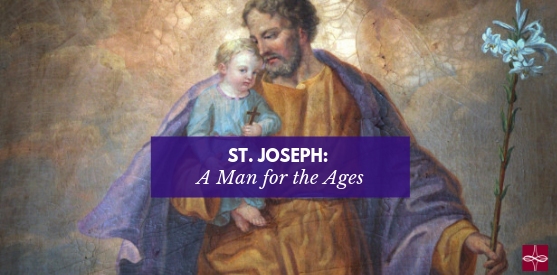

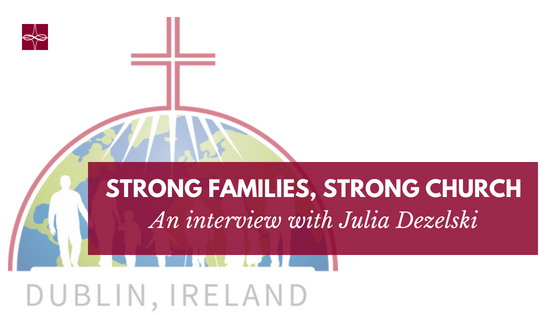
 RSS Feed
RSS Feed